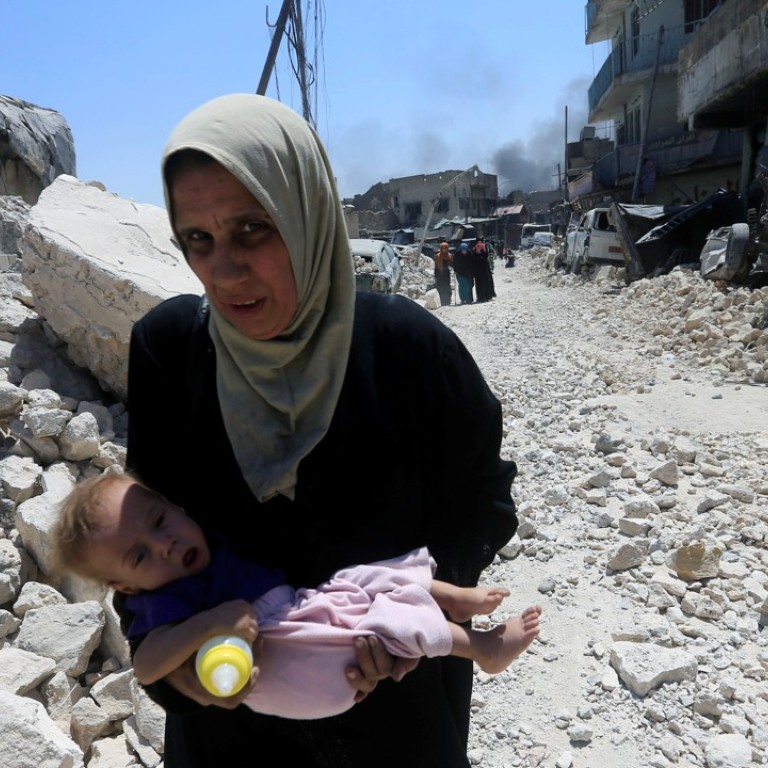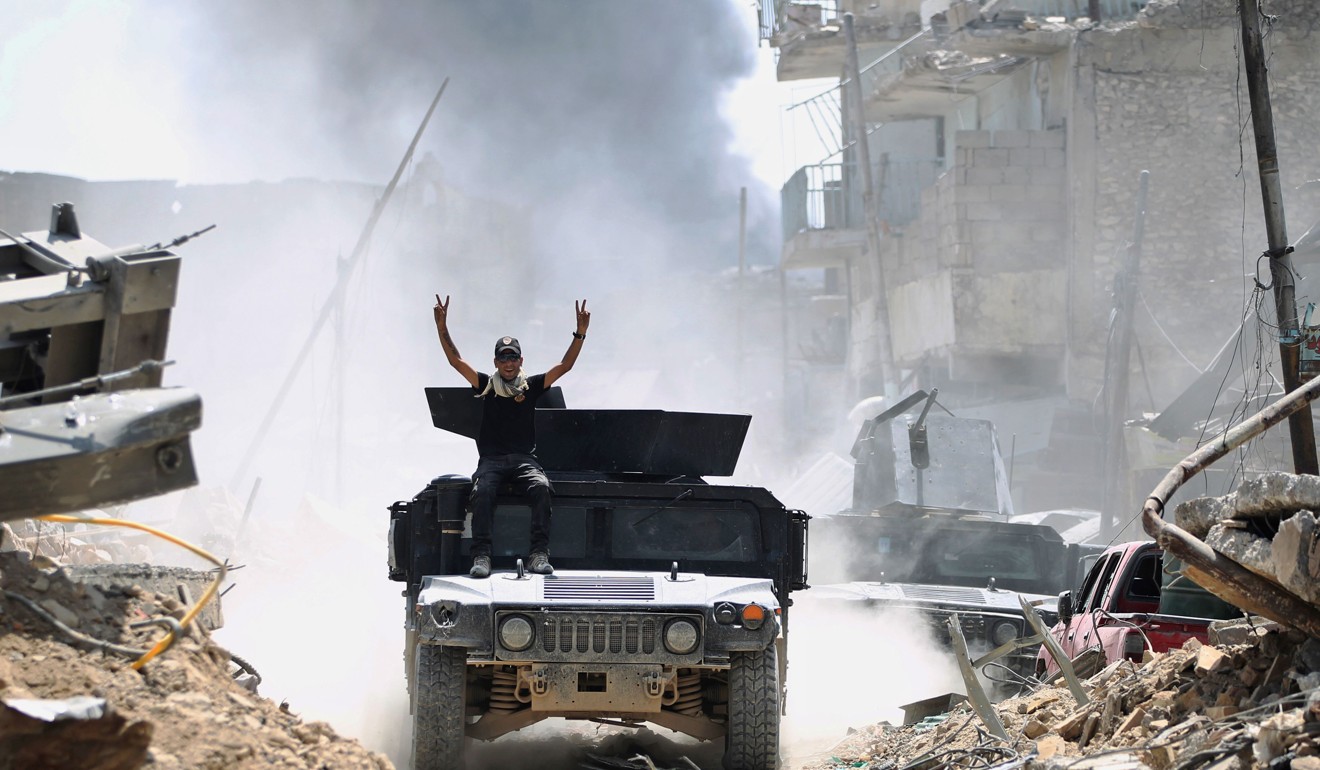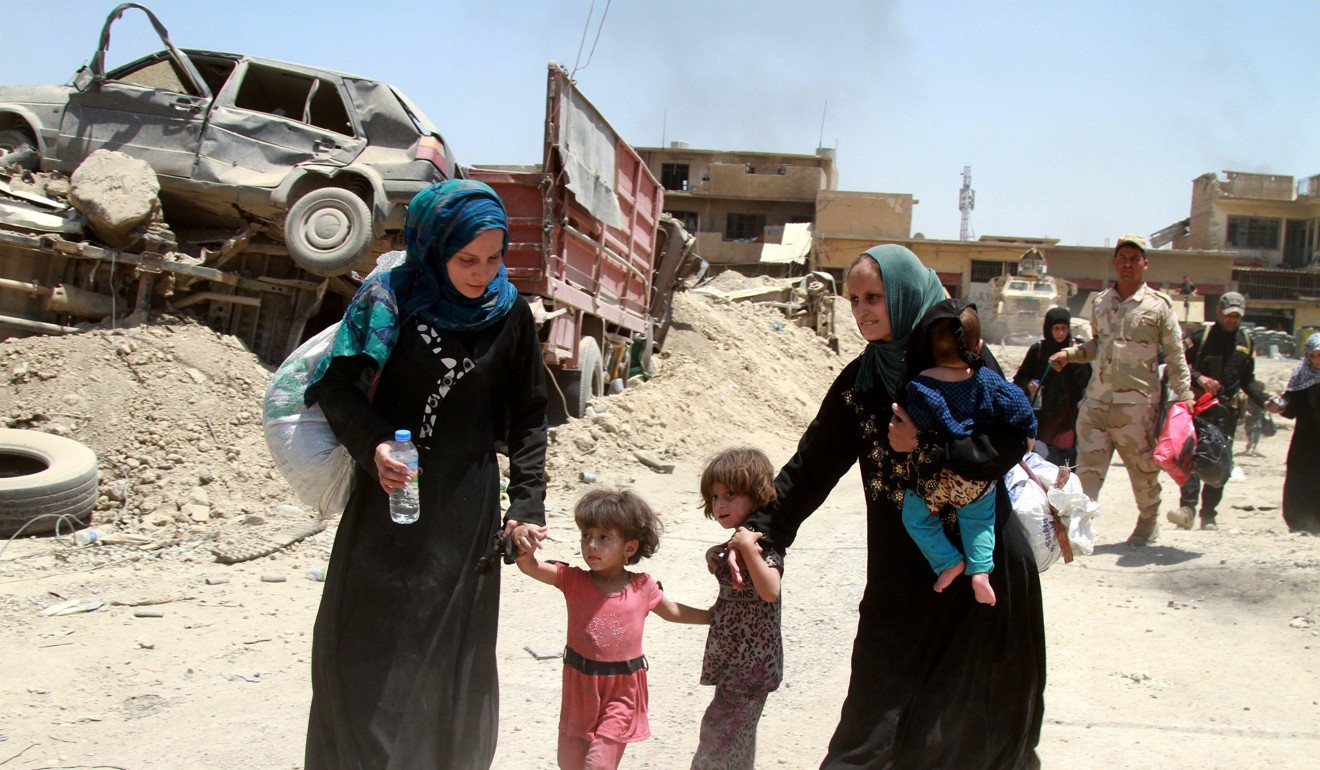
Hundreds flee as battle for Mosul enters final stage, but humanitarian situation remains ‘critical’
Islamic State holds a small patch of territory in Mosul’s Old City along the Tigris that measures less than 2 sq km but thousands of civilians are trapped there
Hundreds of civilians fled Mosul’s Old City on Friday as Iraqi forces slowly squeezed the last pockets of Islamic State (IS) resistance, and the UN warned that the “intense and concentrated” fighting put innocent lives in even greater danger.
People climbed over mounds of rubble and through narrow alleys as gunshots and explosions rang out nearby. The neighbourhoods where government forces are fighting have been under siege for months as gruelling urban warfare drew out the operation to retake Iraq’s second-largest city.
For the civilians held as human shields by the extremists, supplies have run low and drinking water is scarce, according to residents interviewed at screening centres and clinics.
The battles continued a day after Iraqi forces made significant gains against the militants and Prime Minister Haidar al-Abadi declared an end to the group’s self-proclaimed caliphate.
We don’t feel the end yet, to be honest. It’s still full on
After a dawn push on Thursday, Iraqi forces retook the symbolic site where the al-Nuri Mosque once stood. It was from the pulpit of the 12th century mosque, which the militants blew up last week along with its famous leaning minaret, that their leader Abu Bakr al-Baghdadi had proclaimed the caliphate in 2014.
During the evening, al-Abadi announced that the full liberation of Mosul was near and that Iraq’s “brave forces will bring victory”.
Lt. Gen. Abdul Wahab al-Saadi said that by Friday afternoon, the special forces were within 700 metres of the Tigris River, which roughly divides Mosul into eastern and western halves.
The operation to retake Mosul, backed closely by the US-led coalition, began in October, with the Iraqi government initially vowing the city would be liberated in 2016.
IS now holds a small patch of territory in Mosul’s Old City along the Tigris that measures less than 2 sq km. The terrain is dense, and the UN estimates tens of thousands of civilians are trapped there.
“We don’t feel the end yet, to be honest. It’s still full on,” said Frederic Cussigh, head of the UNHCR Irbil office.

About 1,400 people fleeing the Old City have been registered at screening centres in the past two days, he added.
“Regardless of the outcome of the battle, the humanitarian situation will be critical for a lot longer than we anticipated,” Cussigh said.
The high numbers of displaced civilians and the extensive destruction will mean more people will have to stay in camps for longer periods, requiring food, water and other aid, he said. Cussigh expects the humanitarian fallout from the fight for Mosul to last into 2018.
The clashes have displaced more than 850,000 people since the operation to retake Mosul was launched, according to the International Organisation for Migration.
The IS media arm, the Aamaq news agency, reported fierce fighting on the outskirts of Mosul and in the neighbourhoods of Bab Jadid, al-Mashahda and Bab al-Beidh, saying its fighters killed more than 50 Iraqi soldiers.
Though IS claims are often exaggerated, the fact that the reports made no mention of the Old City was significant and could be interpreted as indirect confirmation of losses there.

Another IS media outlet, the weekly al-Nabaa, on Thursday quoted an unidentified militant commander as saying that the battle for Mosul is a fight “either to achieve victory or die as a martyr”.
Iranian President Hassan Rowhani tweeted his congratulations on Friday to the city’s residents and the Iraqi people on the “breeze of freedom in Mosul after three years of occupation, violence and killing”.
IS also is under increased pressure in Syria, where its self-proclaimed capital of Raqqa is encircled by an array of forces, closely backed by the coalition. Despite a series of recent losses in both Iraq and Syria, al-Baghdadi’s fate remains unknown.
Ali Shirazi, a representative of Iran’s supreme leader in the powerful Revolutionary Guard, suggested that al-Baghdadi had been killed, the official IRNA news agency reported. He did not elaborate.
Earlier this month, Russia said he may have been killed by one of its airstrikes in May on the outskirts of Raqqa. Russian officials stressed, however, that the information was still being verified. Russia and Iran are staunch allies of Syrian President Bashar al-Assad.

